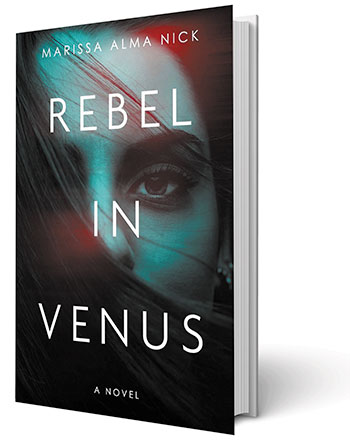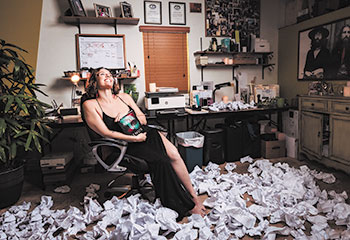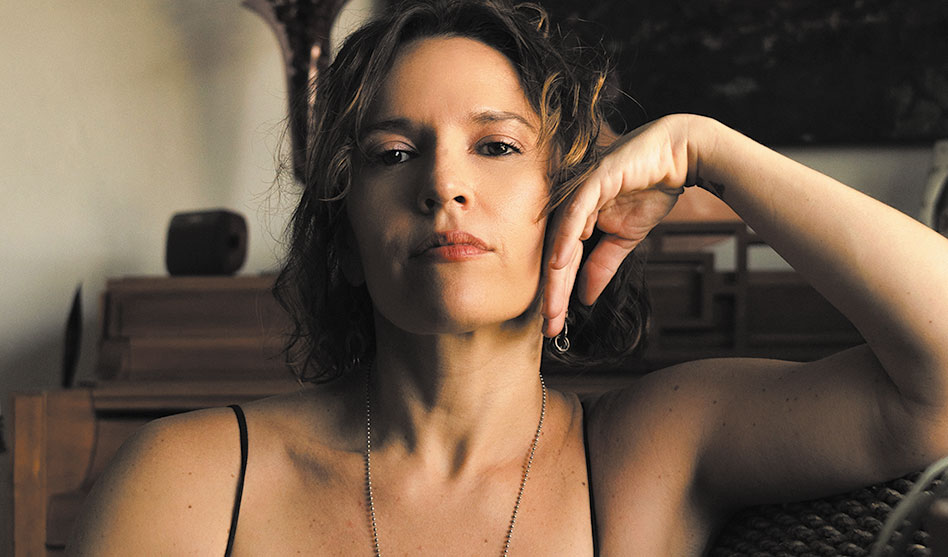Dancer/choreographer/writer Marissa Alma Nick
Marissa Alma Nick is a writer, a choreographer, “a survivor and fierce advocate for mental health awareness,” according to her bio on Google Books. Born in Miami, in 2015, Nick established her own dance performance company, Alma Dance Theater, which has produced four full-length live and immersive shows in Miami. Rebel in Venus, released earlier this year, is her first book.
Nick sat down recently to discuss her semi-autobiographical tome.
—Melissa Whitler
Dallas Voice: To start out, how does it feel to be a published author? Marissa Alma Nick: It’s beautiful and exciting, but I also have lots of feelings of imposter syndrome. I’ve always loved writing, but never thought I would write a book. Since it only came out at the end of May, I still feel like I’m in a transitional phase of accepting that I’m an author.
Can you tell us a little on what Rebel in Venus is about? The story takes place over one night, and revolves around these two girls, Layla and Maria, just sitting and talking. It delves into the girls’ backstories and past reflections of Layla. It deals with issues of mental health, sexual liberation, abuse and finding true friendship through hard times. Overall, I think of it as a hero’s journey about somebody who’s experienced anxiety and trauma learning to love themselves enough to get help.
 Where did the idea for the book come from? It’s actually quite a story of how this book came to be. While it is fiction, a lot of it is drawn from my own life. I’ve been a dancer my whole life, and the concept actually started as a dance piece. I founded an all-femme company, and all our work is very female-oriented.
Where did the idea for the book come from? It’s actually quite a story of how this book came to be. While it is fiction, a lot of it is drawn from my own life. I’ve been a dancer my whole life, and the concept actually started as a dance piece. I founded an all-femme company, and all our work is very female-oriented.
When we started working on the show, it brought up lots of my own experiences with sexual trauma. Soon the dancers began to have conversations, and I told them about my experience. Other people related to it, and we started this beautiful process of working through this collective trauma. The show became a reflection of these conversations we were having.
The audience was like a fly on the wall of girls having unfiltered conversations.
Then I faced my first injury, which had a six-to-eight-month recovery time. Then, two months later I lost my best friend to suicide, which was devastating. And two months after that, the COVID-19 pandemic began. I was sitting with all these questions and depressing thoughts. At the time, I didn’t know what was going to happen, if I would be able to dance again. I was really struggling with mental health, and finally began outpatient therapy. I started writing again as a way to process, and it grew from there.
I didn’t know story was going to mirror the dance show until it became that.
How was it writing on such heavy topics, especially knowing your family and friends would read it? Funny enough, I thought of everybody else except myself. I ended up sharing the book with one of the women I was teaching, and even though at the time I was still presenting it as complete fiction, she told me she would want to read the book even more knowing what I’ve been through. It was an inspiring moment and showed me just how important it is to be open about our stories.
We’re having a mental health epidemic in our country and are still getting a hold of how to talk about it. I want readers not to feel like a burden but a hero when reading the book. You must be vulnerable to make art, so I dug into the darkest parts of myself to really reach people.
It was scary to know my family would read it, because there were some parts of my past they didn’t know about. But I knew that the message was bigger than myself and my family. That’s really the point of the book, our fear of sharing our truth can have consequences that ripple beyond us.
 How has your experience as an athlete shaped your work? The way I choreograph found its way into the book. I wanted to bring the physical experience in certain moments to the forefront. One thing I’ve learned from therapy is how to go into my body and describe what I’m feeling. We become so disconnected with our bodies because of trauma. Through therapy I’ve actually become connected with my body in a way I never have before.
How has your experience as an athlete shaped your work? The way I choreograph found its way into the book. I wanted to bring the physical experience in certain moments to the forefront. One thing I’ve learned from therapy is how to go into my body and describe what I’m feeling. We become so disconnected with our bodies because of trauma. Through therapy I’ve actually become connected with my body in a way I never have before.
As a dancer you learn to accept a certain level of pain and work through it. You can be very professionally aware of your body but still be disconnected from it. I wrote Laila as a dancer because of that, because she, too, is also very disconnected from her physical self.
How has it been connecting with people through the book and on tour? I absolutely love it. Readers have been very vulnerable, sharing their experiences with me. It can be powerful and overwhelming, since it takes a lot of courage to say those things out loud. I feel so grateful, all the feedback has been really positive. Sometimes I still wonder if it’s actually good, so it’s really reassuring to hear how the book has affected people. I wrote the book to try and save lives, and I think it’s doing that.
What’s next for you? I’m definitely going to continue writing. I’ve come to a place where I know I don’t have to make a decision between dancing and writing. Now that I’ve started, I can’t stop; I just love story telling. I did the narration of the audiobook that came out Nov. 1, so I’m really excited to share that.
And I want to continue getting Rebel in Venus out to new audiences, especially queer youth. Suicide and mental health are big issues in the queer community, but being gay is not the trauma, not the thing that needs healing. It’s the experience of being in the world that needs to change.
For more information on Rebel in Venus, visit RebelInVenus.com/thebook. Twenty-four-hour resources are available with the national suicide hotline at 988 and the sexual assault hotline at 1-800-656-4673.

